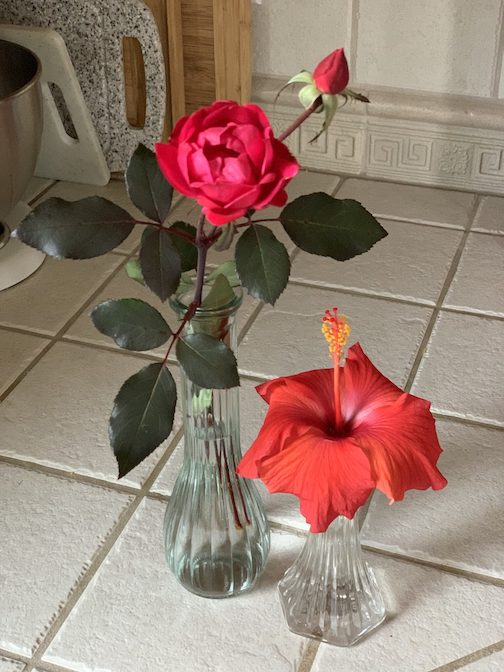I don’t remember the first time I heard this phrase, but it immediately struck a chord with me.
It’s not your fault, but it is your fight.
Sometimes life deals us a crappy hand of cards. Maybe it’s a physical or mental illness that we have to deal with. Maybe it’s a difficult parent or tough childhood that left us with trauma or scars. Maybe we’re parenting a particularly challenging kiddo.
Those things definitely are not – and were not – our fault. No one asks to be born into a painful or difficult situation.
It is definitely on us, however, to find a way to make peace with what is and rise above our challenges in order to be our very best selves and live our best life.
I worried about posting this. I don’t want to be seen as a purveyor of “toxic positivity.” I’m a naturally positive person, which I know can come across as insincere at times or, even worse, toxic. This is something that I’m working on by being more mindful of it.
I know it’s wrong to tell a depressed person to “just cheer up.” That’s not what this post is about.
Rather, I am a big believer of “name it to claim it.” This means that sometimes there is power in acknowledging that something is not our fault, but that we do have to own our role in our struggle. It’s about taking ownership and taking responsibility for our own life.
Even when we feel powerless, we still have some power and autonomy and control in our lives – for example, via our attitude or how we respond to setbacks and events.
I love this quote from Mr. Rogers, who in my personal view is the gold standard for non-toxic positivity:
Anything that’s human is mentionable, and anything that is mentionable can be more manageable. When we can talk about our feelings, they become less overwhelming, less upsetting, and less scary. The people we trust with that important talk can help us know that we are not alone.
Mr. Fred Rogers
By acknowledging our struggles, by naming our feelings, by sitting with our emotions and by asking others for help, we can conquer some of our fears and take back some of our power.
No, it doesn’t make real conditions like anxiety or depression go away – those are health conditions just like diabetes or cancer. They may be called mental illnesses, but they have a physical origin in our brains. I’m not talking about vanquishing mental illness through the power of positivity – I know that’s not possible.
I am saying that it is within everyone’s power to do the very best we can to react and respond in ways that will further our health and well-being. This might look different to everyone, but it could take some of the following forms:
- Reach out for friends instead of isolating
- Spend time outside in the sunshine for a natural vitamin D boost
- Go for a walk or run, or get in some other form of exercise, to help boost energy and happiness naturally
- Find a way to laugh – whether that’s a funny book, movie, TV show or YouTube video. Laughter heals!
- Consider alternative healing methods such as energy work, acupuncture, crystals and more
- Focus on mindfulness through breathing exercises, tapping, meditation, chanting or yoga
- Eat foods that make your body feel good. This might be fruits and vegetables one day and a Cinnabon or spaghetti and meatballs the next.
- Say yes to self care like a warm bath, soothing lotion all over your winter-parched skin or listening to your favorite music for an hour
- Spend time with animals and enjoy petting them, caring for them and just watching them be cute
- Give back and serve others by volunteering in a way that feeds your soul
- Tackle something we have been putting off, procrastinating or avoiding (I can’t be the only one)
Let’s face it: on the hard days, owning our fight might look like simply forcing ourselves to get out of bed and take a shower every day.
Accepting and stepping into our personal fight could also look like practicing something that is new and hard for us, so that we can train our brain and get better at it.
For example, there may be skills, tools or techniques taught to us in therapy that take a lot of practice in order to make them second nature. These could be things like challenging negative thoughts, being mindful of thinking mistakes we make (like all or nothing, black or white thinking), or simply remembering to ask for help when we need it.
Unless we are mindful and intentional about practicing these new skills, they cannot help us. The skills aren’t a magic button. The skills don’t do the work – it’s up to us to do the work. As in so many other areas of life, knowing what to do and actually doing it are two separate things.
Are you taking on your fight – or have you given in or given up? What are some tiny first steps you could take to own your fight, live your best life and rise above things that may be holding you back even though they were not your fault to begin with?
Please let me know if there’s anything I can do to help you in your personal fight. Are there topics you’d like to see us write about here? I’m all ears in the comments below or over on Facebook or Instagram. We’re all in this together.




